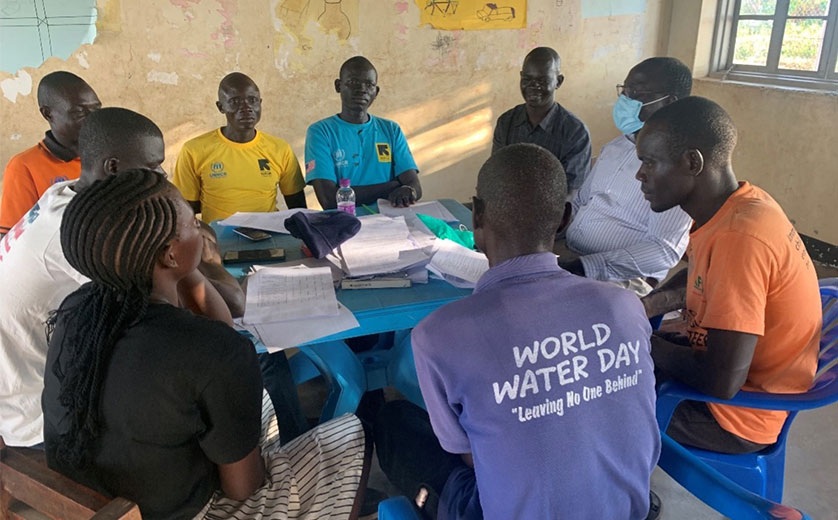Three Brown School Assistant Professors—Nhial Tutlam, Proscovia Nabunya and Mitra Naseh—have been awarded $150,000 from the Fogarty International Center (FIC) at the National Institutes of Health (NIH) to build research capacity among refugee youth living in refugee settlements in Uganda.
The project, titled RCap4Youth: Research Capacity for Refugee Youth, is an administrative supplement to the current ICHAD’s ACHIEVE D43 Training Program led by Fred Ssewamala, the William E. Gordon Distinguished Professor at the Brown School and Mary McKay, Vice Provost of Interdisciplinary Initiatives at WashU. The project will recruit refugee youth residing in refugee settlements in Uganda with the ultimate goal of training a cadre of young people to engage in research focused on addressing health issues faced by vulnerable populations in humanitarian settings.
Forcibly displaced populations face numerous health challenges resulting from their displacement. Moreover, humanitarian settings such as refugee camps pose a grave threat to public health not only for the refugees but for host communities as well. Crucially, there is now great recognition that there are critical scientific questions with significant public health implications that can only be answered through research conducted in humanitarian settings. Unfortunately, it is exceedingly difficult to conduct research in humanitarian settings, and there is a well-documented lack of trained workforce to address the myriad of health challenges facing these vulnerable populations and research capacity to help identify and develop evidence-based strategies to address them.
This new project aligns with Fogarty’s initiative to promote diverse perspectives in its training and educational programs. It will leverage existing infrastructure and partnerships to identify research capacity gaps and develop a much-needed research training curriculum focused on intervention research design, implementation, and ethical conduct of research.
Tutlam notes that: “As a beneficiary of great mentorship through the ACHIEVE training program, and now a mentor in the same program, I am very excited that we will have the ability to leverage this training program with mentors from both the global south and global north to provide meaningful training to refugee youth who would otherwise not think about becoming researchers. We have been engaged in research in refugee settlements in Uganda for over two years, and we are committed to recruiting and training refugee youth to engage in the conduct of research within their communities. With this new funding, we will be able to expand the pool of refugee youth who can significantly contribute to health-related interventions relevant to their communities and beyond.”
The research team at the Brown School will collaborate with researchers at Makerere University in Uganda, the Uganda National Council for Science and Technology (UNCST) that oversees research compliance with ethics and regulations, as well as refugee serving agencies in Uganda, including the United Nations High Commissioner for Refugees (UNHCR), International Rescue Committee (IRC), the Uganda Office of the Prime Minister (OPM) that is responsible for refugee welfare, and refugee communities themselves.
Learn more about the project and other ICHAD studies implemented in refugee settlements here: https://ichad.wustl.edu/suubi4refugees/
